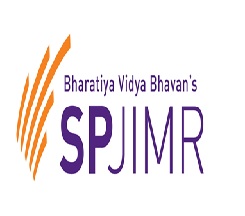Attempting the Common Admission Test (CAT) is just the beginning step in the arduous journey of B-school aspirants. It is followed by a series of personal interviews, group discussions and written aptitude tests of various B-schools in the country. While having personal interviews and group discussions for MBA admissions is a common phenomenon across B-schools, SPJIMR evaluates the potential candidates in the form of group interviews, which makes it one of the most intriguing processes and sets it apart from the rest of the B-schools in the country.
Interview calls for SPJIMR are rolled out in two phases. Participants with stellar profiles across the sections ranging from work experience, education, and extracurricular achievements are awarded Profile-based calls in the month of December, interviews of which happen during the month of January. Factoring in the CAT/ GMAT scores, another trench of participants are awarded profile cum score-based calls in the month of January, interviews of which will be held during January and February.
In both the above-said cases, the interview process consists of 1 round of WAT (Written ability test) and 2 rounds of group interviews. The topic for WAT will be announced on the spot. Participants are given a fixed duration of about 15 minutes to gather their thoughts, compile and deliver a compact article depicting their viewpoint on the specified topics. WAT is not an elimination round. It is important to practice the art of writing concise articles regularly on a wide array of topics.
CAT is a speed-based test of analytical aptitude, logical reasoning skills, data interpretation and English comprehension. Now, it may sound tough, but these are the skills which we are taught in school so there is nothing new to learn. What is required is to learn these subjects at advanced level. If you are an average student but have studied Science or Commerce in Class-12 and graduation, you will find a lot of familiar topics in Data Interpretation, Quantitative Aptitude and Logical Reasoning. All you will need is brush up the basics and practice the concepts on advanced-level problems.
However, since the competition is so high in CAT and less than 95 percentile can break your dream of joining a top college like IIM, the preparation for CAT requires a lot of focus, dedication, discipline and diligence. If you can do that, despite being an average student, you can crack the CAT exam.
Hope it was helpful!!!

Upon the completion of WAT, the process of group interviews begins. Each panel consists of 2-3 panelists and 4-6 participants. The process starts with a brief introduction of the candidates to help the panel get to know the participants better along with the justification of the chosen specialization. Going further, questions will be based on work experience, key concepts related to their domain of expertise and hypothetical situations. At the outset, the group interview might be no different from individual interviews that happen at other B-schools. The fact that you are sitting in a group is what makes it unique. Imagine a situation where, you cannot answer a question, but your fellow candidate answers it convincingly. Questions bouncing from one candidate to the other is quite a common phenomenon during these interviews, wherein a candidate is asked to pitch in his/ her opinion on the responses of fellow candidates. Every candidate is thus expected to not panic and maintain his composure in front of the panel. Candidates are also evaluated on their team playing skills as they are expected to agree or disagree with the answers of their compatriots with courtesy. Hence, a group interview is more of a test of your patience, group dynamics and critical thinking on the spot than a test of your academic and domain expertise.
Questions in the 2nd group interview are mostly centered around the personality of the candidate, candidate-college fitment, adaptability and presence of mind. Answers to the questions in this round are subjective, with no right or wrong answers. The panelists may add more layers to the same question and observe the stance of the candidates alongside their logic. Instead of taking a shot in the dark, it helps to be abreast of the latest happenings around the world, to back your opinions in this round with reasoning.
Last but not the least, there is no better preparation than having the right attitude, being confident, and presenting yourself with a smile. Interviewers at SPJIMR do not judge the candidates but try to understand them better and hence, approach the interview as a conversation.
Yes, work experience is mandatory for admission to the Executive MBA programme at SPJIMR Mumbai. For admission to the PGEMP, a minimum work experience of five years after a Bachelor's degree is required. Diploma holders with a ten-year of experience can also apply for admission to the postgraduate course offered by the SP Jain Institute of Management and Research. In general the admission to MBA is based on CAT scores. Do go through the CAT exam pattern, study CAT preparation stratergy and CAT syllabus.
Note: The views expressed in this article are that of SPJIMR and do not reflect/represent those of Shiksha
News & Updates
Contact Details
Address
New Dadabhai Rd, inside Bhavans College Campus, Old D N Nagar, Munshi Nagar
Andheri West, Mumbai ( Maharashtra)
Get details of Similar Colleges
Student Forum
Answered 2 months ago
Confused about SPJIMR Mumbai admission, cutoffs and “management quota”? Here's a detailed breakdown I found/wrote
Body:
Every CAT season I see the same questions on SPJIMR:
– “Kitna percentile chahiye? ”
– “Is there a management quota / donation-based seat? ”
– “What are the real fees and placements li
r
Beginner-Level 1
Answered 6 months ago
SPJIMR and SP Jain Global are 2 separate institutes and not connected. SPJIMR — S.P. Jain Institute of Management and Research is part of the eminent Bharatiya Vidya Bhavan Education Trust. SPJIMR Mumbai campus is located within the Bhavan's campus in Andheri West, and the Delhi Campus is located w
Answered 6 months ago
The max. package offered at SPJIMR Mumbai during the recent placements stood at 89 LPA for the PGDM Class of 2025. In addition to this, the average & median packages stood at 32 LPA & 30.5 LPA, respectively. SPJIMR Mumbai invites eminent recruiters for placements including BCG, Accenture Strategy
Answered 6 months ago
SPJIMR Mumbai admission is given on the basis of the merit acquired in the qualifying examination & the scores obtained in the entrance examination. Candidates must get at least 50% in graduation to secure admission to SPJIMR Mumbai, along with valid entrance scores in the entrance examination (CAT/
Answered 6 months ago
Admission to SP Jain Institute of Management & Research Mumbai is based on both merit &entrance exam scores. The institute accepts the following entrance examinations:
- CAT
- XAT
- MAT
- CMAT
- NMAT
- ATMA
In order to secure admission to SPJIMR Mumbai, candidates must fulfil the course-specific eligibility requiremen
Answered 6 months ago
Aspirants who have completed UG degree or are a fresh graduate from any education stream enrolled in any college and are comfortable with English can apply for Graduate Certificte Programme in Entrepreneurship (CGPE) at SPJIMR. It is suggested that aspirants must have completed a minimum of one seme
N
Guide-Level 15
Answered 6 months ago
S.P. Jain Institute of Management &Research provides the flagship programme of Post Graduate Diploma in Management (PGDM), which is a popular choice for students in Management. The total tuition fees for the course is INR 9.5 L - 26.1 L, &the programme is available in various specialisations. The fo
A
Contributor-Level 10
Answered 7 months ago
No direct admission to SPJIMR after 12th. Requirements:
- Bachelor's degree (50% aggregate)
- Work experience (for PGPM)
- CAT/GMAT/XAT scores
- Personal interview
Fees: INR 9.5L (PGDM), 21L (PGPM).
B
Contributor-Level 9









Yes CAT syllabus is difficult to crack if you do not have enough time. There are three subjects in CAT- VARC, DILR and Quantitative Aptitude. Most of candidates find RC passages tough to crack. In Quants, Arithmetic, Algebra and Geometry pose significant challenge during preparation. In DILR, Reasoning questions often turnout to be tricky and confusion.